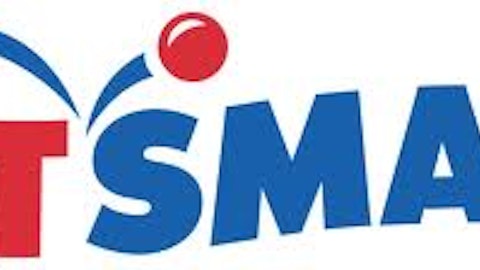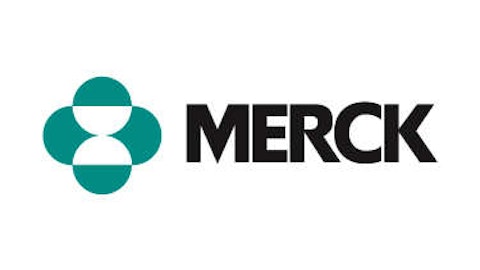Who is the largest commercial owner of solar? If Wal-Mart Stores, Inc. (NYSE:WMT) was your first guess before reading the headline of this article, I would be shocked; but that’s the right answer.

Wal-Mart has now covered 200 of its 4,500 domestic stores and distribution centers with solar panels, and it plans to expand that number. It just announced a deal with SolarCity Corp (NASDAQ:SCTY) to install solar panels on up to 60 more stores in California, bringing solar to 75% of stores in the sunny state.
Solar is more than a PR stunt for Wal-Mart, it’s a core piece of the company’s energy policy, plus it’s just good business.
It’s all about the money
Wal-Mart Stores, Inc. (NYSE:WMT) is doing this in part for image purposes; but don’t think the finances aren’t the main driver of all this solar. Solar energy is now cheaper than residential and commercial energy in many locations, and Wal-Mart is taking advantage of this fact. Wal-Mart can offset demand at its stores with solar power generated during the day, saving money in the end.
Wal-Mart and SolarCity Corp (NASDAQ:SCTY) aren’t releasing the rates they’re getting from the utility for solar, but there’s plenty of evidence that it’s at or near the cost of grid electricity. First Solar, Inc. (NASDAQ:FSLR) , which is one of the low-cost providers of solar, recently bought a project in New Mexico that had a power purchase agreement for 5.79 cents per kW-hr, or about $0.08 after state and local incentives. This compares to an average residential cost for electricity of 11.9 cents per kW-hr, or 10.1 cents per kW-hr for commercial use.
Wal-Mart Stores, Inc. (NYSE:WMT) has millions of square feet of unproductive rooftop space around the country — space it’s now starting to put to use. And other retailers are following suit.
Follow the leader
A report by the Solar Energy Industries Association last year put Wal-Mart at the top of corporate installers, but some big names were close behind. Costco Wholesale Corporation (NASDAQ:COST) is the second largest installer of solar, and it recently began selling solar kits to its customers.
Kohl’s Corporation (NYSE:KSS) is actually third on this list, with over 150 locations generating solar power. This is a larger renewable energy for Kohl’s, which offsets non-renewable energy usage with renewable energy credits. These are sold by renewable power generators to companies that have an environmental goal or mandate to meet renewable requirements.
You may be seeing a trend above. Three of the largest discount chains are three of the largest solar installers in the U.S. If companies that are focused on bottom-line results are buying solar, why shouldn’t we think the trend will advance to more companies with unused rooftop space?
More to come
Even these three companies have just begun scratching the surface of solar. Wal-Mart still has 4,300 locations without solar and, with recent installations announced as far north as Ohio, there’s no reason to think this won’t be a national strategy. Electricity costs, solar intensity, and local policy will play a role, but I think Wal-Mart Stores, Inc. (NYSE:WMT) will continue to be the leader in commercial solar.
Kohl’s has also made a long-term commitment. About 15% of its stores are already solar covered, which is a good start; but that leaves about 850 without solar. That’s a huge opportunity for both Kohl’s and the solar industry.
Foolish bottom line
Companies like SolarCity and SunRun are making commercial installations possible from a regulatory and installation standpoint, making it easy for big retailers to go solar. Overall, installations in the U.S. grew 76% last year and commercial will continue to be a big piece of this growth. If Wal-Mart, Costco, and Kohl’s are believers in solar, you should be too.
The article Why Wal-Mart Loves Solar originally appeared on Fool.com and is written by Travis Hoium.
Fool contributor Travis Hoium has no position in any stocks mentioned. You can follow Travis on Twitter at @FlushDrawFool, check out his personal stock holdings or follow his CAPS picks at TMFFlushDraw. The Motley Fool recommends Costco Wholesale. The Motley Fool owns shares of Costco Wholesale.
Copyright © 1995 – 2013 The Motley Fool, LLC. All rights reserved. The Motley Fool has a disclosure policy.



